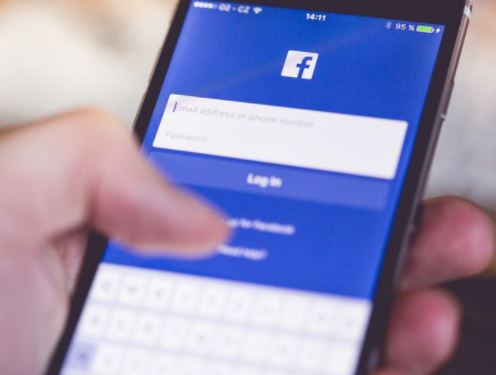General
Facebook Data Scandal: The Malicious Role Of Social Media In Today’s Politics

The increased usage of the internet and social media has technically turned all netizens to citizen journalists as well as boosting communications among people. This has enhanced political consciousness, participation as well as establishing a viable channel of communication between the electorate and their representatives in government. Apart from the merits, social media advent has also brought its ills, part of which we have Fake News, hate speech proliferation as well as privacy breach and others which don’t constitute the focus of this piece.
In the past, news was majorly propagated through the broadcast media involving the television and radio as well as the print media – newspapers after it must have been well vetted by professional hands to prevent creating undue panic and disruption in the society through misinformation.
Today, committing sedition and subversion through propaganda has become too undemanding. You can write any bland or unverified claim or story and drop it on your WhatsApp or Blackberry Messenger, BBM urging people to share among their contacts and most people will obey without even reading the details. People go as far as uploading such adverse contents on personal blogs. Such sensationalized contents get massively plagiarized by other bloggers hungry for traffic to boost revenue.
This might make it to Facebook, Instagram, Linkedin, Google Plus and Twitter with people sharing, regranning and retweeting to boost its outreach. If the purveyor of the news has some funds to spare, he might just sponsor the post with some money to reach thousands of people who might believe without considering the veracity of the news.
In May, 2017; seven men were killed in two vigilante mob attacks in state of Jharkhand, central India over rumours on the messaging service WhatsApp warning of strangers who were abducting children.
The stories proved entirely false. At the gory scenes of jungle justice, misguided crowds swelled to more than 500 over several hours and the victims were tortured to death. According to the police, the men who were killed were innocent passers-by.
Recently, Nigerian singer, Tiwa Savage was shocked that her death was announced on a Facebook page to serve as click baits. Social media interactions have also increased the flow of hate speeches with people from different ethnic groups using unprintable names and expressions against each other while debating on mostly political issues. All these have further divided Nigerians with citizens showing loyalty to their states of origin rather than the country. I am sure it was on the note that the missing separatist leader Nnamdi Kanu of the proscribed Indigenous People of Biafra was able to rapidly win the hearts of millions of people of South-eastern and South-southern extractions as the seeds of discord were already sown in their hearts.
Tracking Fake News and Hate Speeches on social media has become a herculean task even the under fire programmer, Mark Zuckerberg might not have answers to.
Furthermore, in an era of big data and Fake News, political leaders are changing the way they campaign. What you post on social media is being watched and used. What you see is being crafted to influence your perception.
The Cambridge Analytica and Facebook scandal which is still unravelling has proved beyond reasonable doubts that social media platforms are not mere playgrounds anymore. Personal details of people are being retrieved and sold to questionable people who in turn send you contents that could influence your thought process.
Cambridge Analytica, a British political consulting firm which combines data mining, data brokerage, and data analysis with strategic communication for the electoral process boasts it can find your voters and move them to action through data-driven campaigns and a team that includes data scientists and behavioural psychologists.
In a nutshell, personal details here are being used to manipulate political views for money which is termed ‘Psychosocial profiling’. Facebook makes money by selling digital advertising spaces with annual revenue that amounts to $40 billion. About 1.4 billion people log on to Facebook everyday making the platform a big market for advertisers. Cambridge Analytica is accused of using the data of over 50 million Americans harvested from Facebook through a sham personality test that initially engaged about 270,000 participants to target and manipulate U.S voters during the 2016 presidential election in favour of President Donald Trump who has since distanced himself from the company.
Cambridge Analytica also reportedly interfered with the outcome of the Brexit referendum in the United Kingdom according to a whistleblower, a former director of research at Cambridge Analytica – Christopher Wylie.
President Uhuru Kenyatta of Kenya also is believed to have consulted the U.S-based company in 2013 and 2017 for campaign strategies during presidential elections. The self-acclaimed giant of Africa, Nigeria was also touched by Cambridge Analytica. The company reportedly influenced the 2007 presidential election won by late former President Umaru Musa Yar’Adua.
The Guardian, a British newspaper had also reported that in the run up to the 2015 election, Strategic Communication Laboratories, SCL (parent company of Cambridge Analytica) was hired by a wealthy Nigerian who supported then incumbent, President Goodluck Jonathan, to sway the polls. It said Cambridge Analytica worked with people they believed were Israeli computer hackers, who offered it access to private information about Muhammadu Buhari, of the then opposition All Progressives Congress (APC).
From Indonesia (in 1998) to Thailand, Cambridge Analytica’s parent company also influenced Southeast Asian politics where it did a test-run of its work model. In total, SCL claims to have worked on more than 100 election campaigns across 32 countries.
Applications that do personality tests have a way of harvesting data of participants and also that of their friends without their knowledge. A school of thought has it that the scandalous business model of Facebook is what the platform was built for as it makes it easy for advertisers to target their potential customers and there is a strong possibility that it would be business as usual for Facebook when the dust raised is settled.
Christopher Wylie has described the act of data grab as a form of harm and damage to the political process. According to him, cutting edge technology has shown that the computer has a better way of understanding human behaviour better than human beings.
“On social media, you curate yourself; you post so much information about who you are in one single space. Whenever you go and you like something, you are giving me a clue as to who you are as a person and so, all of these could be captured very easily and run through an algorithm that learns who you are. When you go to work, your co-workers only see one side of you, your friends only see one side of you but a computer sees all kinds of sides of you. And so we can get better than human level of accuracy in predicting human behaviour” he said while speaking with the British public service, Channel 4.
The whistleblower believes there is a dangerous alchemy to Cambridge Analytica’s art.
[i]”There is lack of awareness, it is coercive. If I am studying you and I have enough information about you because you have curated your entire self online and I capture that, I can anticipate what are your mental vulnerabilities, what cognitive biases can you display in certain situations and I can exploit that” [/i]he added.
From stimulating U.S Republican campaigns, to election in Africa, Asia and beyond, Cambridge Analytica are now the big data strategist with a big name and little time for ethics.
The issue of Russian meddling in the U.S election which prompted Zuckerberg to consider going back to the basics of the foundation of Facebook is centred on his company. As long as the Russians had about $1.25 million to spend for advertisement per month, their political messages were delivered to the door steps of their target audience via social media. Russia has constantly denied meddling in the U.S election or a possible collusion with Trump in the face of a deep investigation by special counsel Robert Mueller.
Facebook has also been monitoring calls and text messages of users using Android phones for years without their knowledge with call logs stored up although this could be deactivated. This scandal has continued to cost Facebook billions of dollars and if events continue to go south, this might mark the downfall of Zuckerberg. Facebook business model is now under scrutiny and last week Thursday, its shares lost $50 billion in market value.
If Facebook is found guilty of privacy violation by the Federal Trade Commission, FTC (a constituted body in America whose principal mission is the promotion of consumer protection and the elimination and prevention of anti-competitive business practices) Facebook might pay a sum of $40,000 for each case of privacy violation in the Cambridge Analytica scandal. Multiply that figure by the over 50 million cases and the possible end of Facebook is what you will get.
Facebook is not alone; Google Inc also has some questions to answer. An investigation by Quartz discovered that smartphones and tablets running the Android operating system continued to track a user’s general location even when location services were turned off, the phone didn’t have a SIM card, and no apps were installed. As long as the device was connected to the internet, it transmitted the address of nearby cellphone towers back to Google’s system that’s used for push notifications and messages. This could predispose phone users to a huge security risk.
The Google map also has a way of tracking the movements of users when installed on phones and Google Street View technology has been rejected by some countries e.g. India over expected privacy invasion, spying and security breach. There are fears that this could be utilized by terrorists and other criminals to orchestrate mayhem.
Email marketing also constitutes a nuisance in Nigeria with private e-mails of people being surreptitiously sold to third parties who end up harassing you with unsolicited emails to create awareness about certain goods and services.
The Facebook data scandal might be bigger than what we can see at the surface level. The simple conclusion is that social media is not as safe as it was touted to be thereby turning people into puppets in the hands of some faceless programmers.
In the 21st century where smartphones have become the greatest companion of people and social media is their popular destination on the internet, more millions of people will be subjected to political manipulations as we have seen in the controversies surrounding the 2016 U.S election.
In summary, the role of social media in today’s political process can’t be overemphasized and its abuse should be curtailed by constituted authorities so that it will not be used to undermine democracy.

-

 Technology2 years ago
Technology2 years agoVoIP Number: Everything You Need To Know
-

 Music2 months ago
Music2 months ago[Music] Gnash Ft Olivia O’Brien – I Hate you, I Love you
-

 Music2 months ago
Music2 months ago[INSTRUMENTAL] John Legend – All Of Me
-

 Music2 months ago
Music2 months agoAlan Walker – Faded [INSTRUMENTAL]
-

 Music2 months ago
Music2 months ago[Video] 21 Savage ft. Offset & Metro Boomin – Rap Saved Me
-

 Music2 months ago
Music2 months ago[Instrumental] Wiz Khalifa – See You Again ft. Charlie Puth
-

 ANE Stories4 months ago
ANE Stories4 months ago[STORY] AMAKA THE LESBIAN (Complete Episodes)
-

 Music2 months ago
Music2 months ago[Music] Akon – Sorry Blame It On Me






























